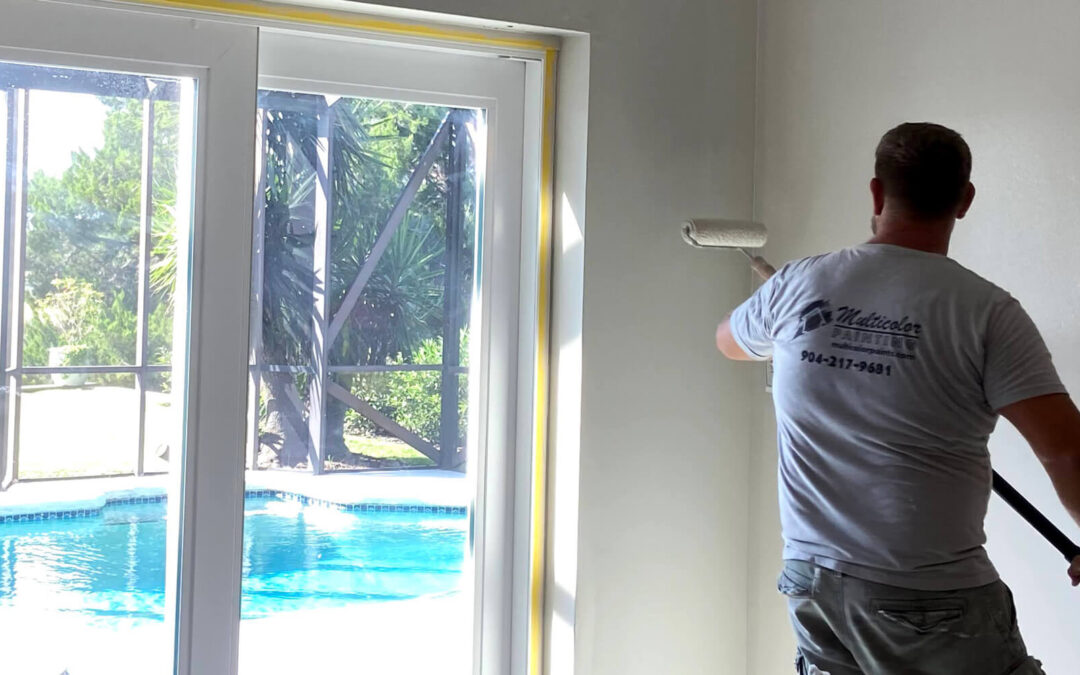I am sure most of you would rather choose to lay on the beach instead of paint your walls – especially in this steaming hot weather. However, you do not have to worry about spending your summer vacation days working on your house if you hire a good local painter. I can put a fresh coat of paint on your walls and have it ready before you get time off, or while you are enjoying your time at the beach.
If you do decide to take on a painting project on your own, here are a few helpful tips to making painting easier in the summer!
Tips for exterior house and wall painting in hot weather
It is important to avoid painting in direct sunlight and to paint sections of the house that are in the shade, paying attention to the direction of the sun in the sky. Start painting early in the morning on the south side of your home before the sun is at its strongest. After, you will have enough time to move to the west side of the building before the sun directly hits those walls. Later in the afternoon you can continue to the east side of the house. The higher the temperature is, the quicker evaporation is, so it is important in the summer to paint fast with quick strokes to avoid streaky or patchy walls due to different drying times. This may be more difficult for an inexperienced painter, so we especially recommend avoiding painting during the hottest part of the day and taking advantage of early morning and evening hours.
Helpful advice to avoid damp and stained walls
It is true that when the temperature rises the walls dry faster too. However, the high humidity in Florida during the summer slows the drying of paint and increases the probability of trapping moisture on the surface of the wall. Fans, air conditioning, or some air flow in the room can help speed up the drying process and help avoid dampness in the walls. Trapping moisture in the walls can quickly stain the drywall and cause rotting and unhealthy mold growth. Having the air conditioning on at 77°F or lower helps your walls dry more effectively. Opening the doors and windows for short periods of time will also give your house proper ventilation and make it easier for you to paint.
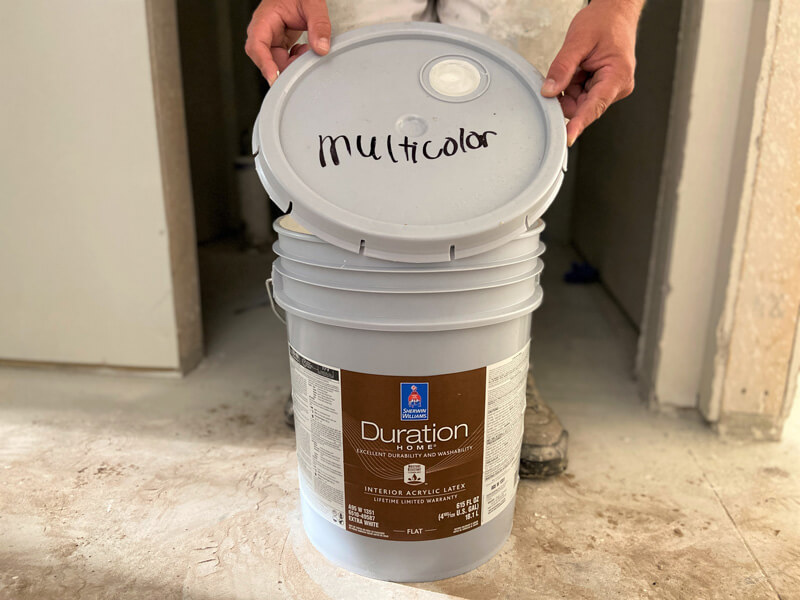
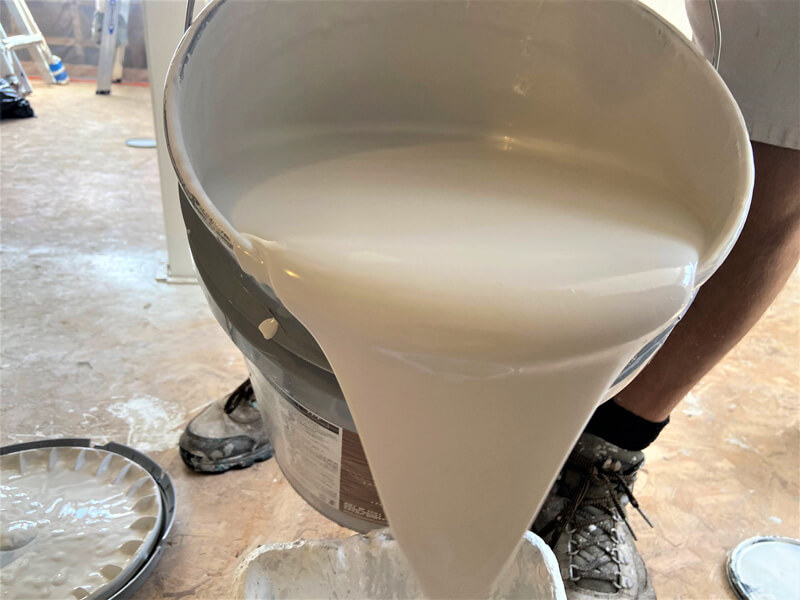
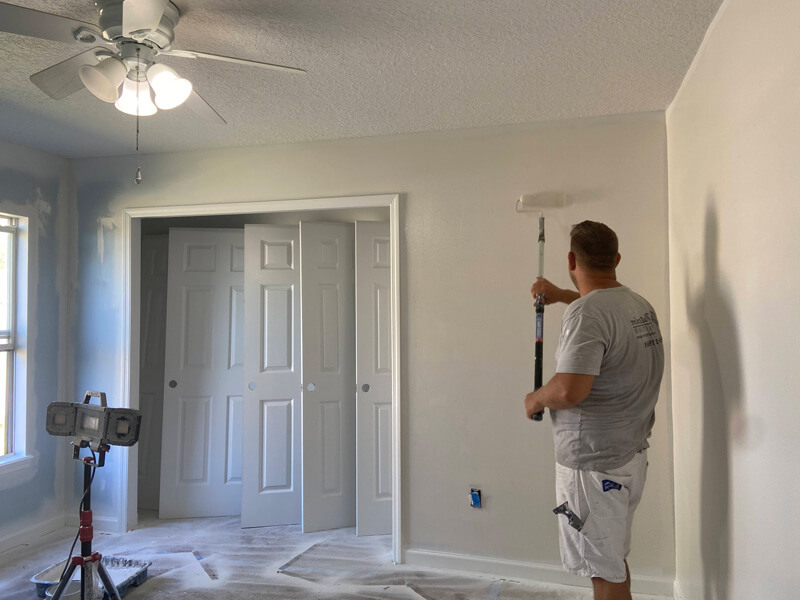
How to ventilate a room while painting
Can you paint in hot weather! Here are some tips and tricks to help you ventilate a room while painting:
1. Open Windows and Doors
The easiest and most effective way to ventilate a room while painting is to open windows and doors. This will allow fresh air to circulate in the room and carry the paint fumes out. Be sure to open windows and doors on opposite sides of the room to create a cross-breeze.
2. Use Fans
Fans can be a great addition to your ventilation plan. Set up fans in windows or doorways to help push the fumes out of the room. You can also use a box fan to create a cross-breeze by placing it in an open window on one side of the room and pointing it outwards.
3. Use an Exhaust Fan
If you have an exhaust fan in your bathroom or kitchen, turn it on while painting to help draw the fumes out of the room. If you don’t have an exhaust fan, consider installing one in the room you plan to paint.
4. Seal Off the Room
If you’re painting a small room, consider sealing it off with plastic sheeting to prevent the fumes from spreading to other areas of your home. Use painter’s tape to secure the plastic sheeting to the doorway, and be sure to leave a small opening for fresh air to circulate.
5. Wear a Respirator
If you’re sensitive to paint fumes or if you’re using oil-based paint, consider wearing a respirator to protect your lungs. Look for a respirator with a rating of N95 or higher to ensure that it provides adequate protection.
Pay attention to ratios when diluting your wall paints
Use the instructions from the paint manufacturer when diluting your paints during the summer. We often do not dilute our paints, but at very high temperatures dilution makes it easier to apply on the walls with the help of a brush or a roller. Use deliberate and fairly quick strokes to easily spread the paint on the desired surface. Try not to stop the roller during the application process and finish the section of the wall you started without stopping for a break. If you do choose to dilute your paint, it is even more important to properly cover all surfaces with a protective sheet and masking tape to avoid paint dripping on unwanted surfaces and having to clean later. Dilution is an especially useful practice when working with darker paints. To make your job even easier, choose one-coat paints, so you only have to apply a single layer of the color after you have already applied your deep primer. This will save you time and energy!
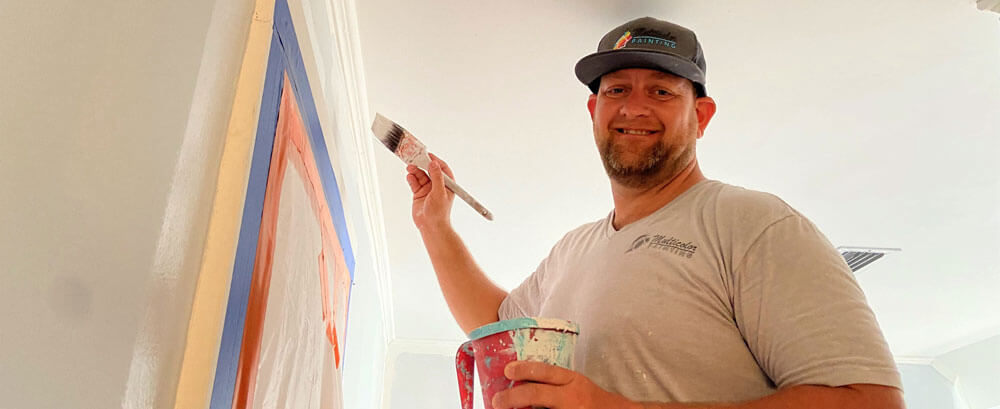
The summer heat in Florida can present some challenges but we are here to help! If you follow these few simple tips, you will not have to wait with your painting project before some cooler weather rolls in. Let us know if you have any questions and we would be glad to assist with your summer project!
Feel free to give me a call! I’ll do an in-person survey and give you a customized quote! Call now: 1(904)217-9681

